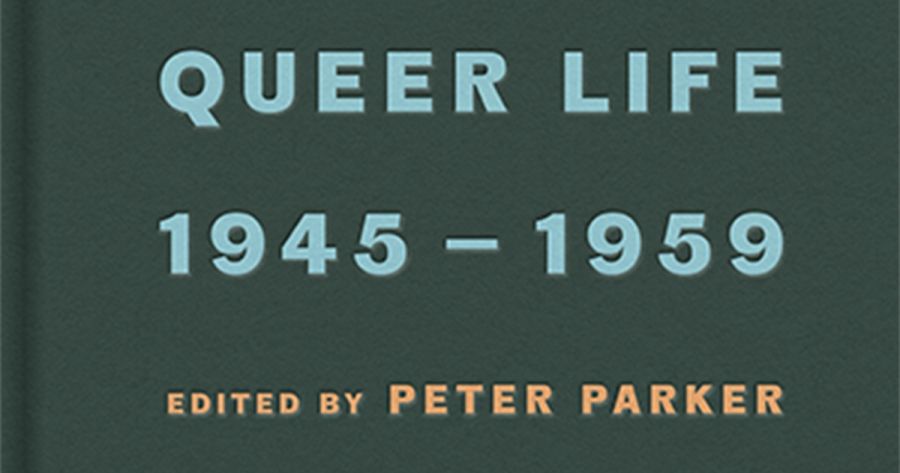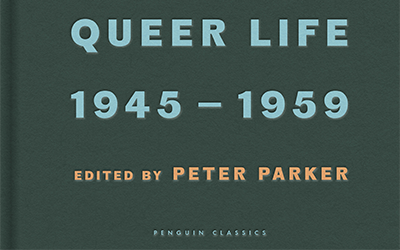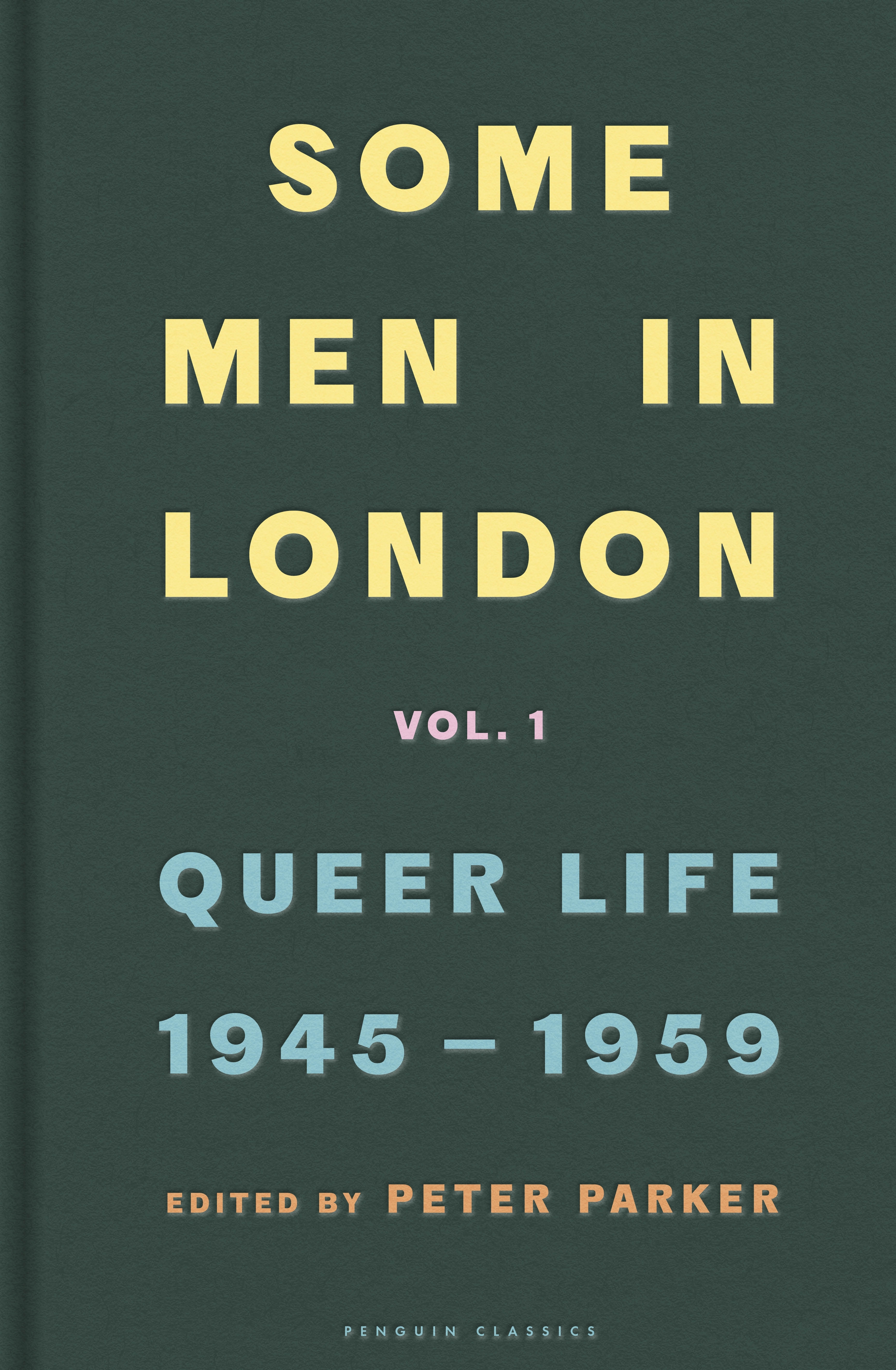
- Free Article: No
- Contents Category: Gay Studies
- Review Article: Yes
- Article Title: ‘What a juxtaposition!’
- Article Subtitle: The bigotry of chaste Britannia
- Online Only: No
- Custom Highlight Text:
The fifteen years from the end of the World War II to 1960 were in many ways a dark period of queer history in the United Kingdom. The 1920s and 1930s were relatively relaxed in their attitudes to the gay world. As Adam de Hegedus, writing as Rodney Garland, wrote in his novel The Heart in Exile (1953), ‘the war broke down inhibitions and the element of danger made sex rampant. Public opinion was lax and the understaffed police had many other things on their minds.’
- Featured Image (400px * 250px):

- Alt Tag (Featured Image): Ian Dickson reviews ‘Some Men In London: Queer life, 1945-1959’ edited by Peter Parker
- Book 1 Title: Some Men In London
- Book 1 Subtitle: Queer life, 1945-1959
- Book 1 Biblio: Penguin Classics, $65 hb, 464 pp
- Book 1 Cover Small (400 x 600):

- Book 1 Cover (800 x 1200):

In his memoir Against the Law (1955), Peter Wildeblood quotes an article by Donald Horne, of all people. Horne says that in the United Kingdom the ‘drive against male vice … originated under strong United States advice to weed out homosexuals’. The new commissioner at Scotland Yard, Sir John Nott-Bower, ‘swung into action on a nation-wide scale. He enlisted the support of local police throughout England to step up the number of arrests for homosexual offences.’ Thanks to the use of surveillance and entrapments, the number of prosecutions for ‘importuning’ or ‘gross indecency’ multiplied from 1,276 in 1939 to 5,433 in 1952, the year after Maxwell Fyffe took office.
Peter Parker’s expansive anthology throws us directly into this world. As he puts it in his Introduction: ‘In order to avoid the pitfalls of hindsight, the book draws only on what was written at the time, creating a mosaic of experience and opinion.’ Using excerpts from diaries, letters, newspaper articles, novels and parliamentary speeches, Parker recreates the era with extraordinary immediacy. He covers everything from the Lords pontificating at Westminster to the sixteen-year-old had up for importuning at Leicester Square. Through the book runs the leitmotif of 1950s justice at work, of lives destroyed and careers wrecked: Major Fitzroy Hubert Fyers (forty-nine), persistent importuning – guilty; Albert Allen Bate (fifty-seven), importuning – guilty; William James Field (forty-three), MP for North Paddington, importuning – guilty; Ian Douglas Harvey (forty-four), MP for Harrow East, offence against public decency – guilty. On and on and on.
In spite of the repression, queer life still managed to continue and Parker’s book opens with a bang, as it were, when, celebrating VE Day, the ‘physique photographer’ John S. Barrington discovered it was ‘impossible to get into Corner House, crowds too great, so pick up a superb sailor, take him to the office and fuck him silly’. To this reviewer’s surprise, the Corner House mentioned was a Coventry Street eating establishment notorious as a cruising joint, which would have been of fascination to him had he realised this when, as a child, he was frequently taken there for lunch before a matinee.
The connection between the services and the gay world described in the previous paragraph is another theme that runs through the book, though it mainly concerns not the navy but the Guards regiments that were stationed in London. Young guardsmen made themselves available to eager queer customers in what, given the nice remuneration they were making, could hardly be called their free time. What with their official daytime duties and their physically demanding, lucrative evenings, it is hardly surprising that the warmer weather saw occasional fainting displays on parade.
The romantic, devoutly Catholic George Lucas became quite lyrical about his partners: ‘It may seem paradoxical to suggest that the existence of a benevolent creator might be deduced from the guardsmen at Marble Arch but the inference seems valid. For could any but a spirit unlimited by time and space design such perfect forms, or any but a benevolent God grant to our eyes the vision of such beauty.’ The somewhat less rhapsodical Conservative politician Chips Channon was amused to notice a night-time acquaintance at an official royal occasion. ‘The Queen in lilac pink really looked splendid … beyond her immediately in the cavalcades of Life Guards was Corporal Douglas Furr, my private friend … What a juxtaposition! The Queen saw me and smiled; he did neither.’
The popular press joined the tirade against homosexuality with a hysterical intensity that would seem almost incomprehensible now if it weren’t for the fact that much of their playbook appears to be being resurrected in Russia, Hungary, and, to a lesser extent, Florida. The journalist Douglas Warth, a prominent windbag on the subject, wrote for the Sunday Pictorial a long and suspiciously well-researched piece on queer habits and meeting places which ends, after regretfully concluding that homosexuals shouldn’t be sent to prison where their perverted ways corrupt the other inmates: ‘A year ago one of the stately homes of England was taken over to make a new prison-without-bars in Gloucestershire. Let us hope that a year from now another is taken over to provide a research clinic for perverts where they may be kept in treatment and custody until they threaten society no more.’ This typically English combination of snobbery, ignorance, and bigotry was considered by some to be too lenient for the evil hordes who threatened chaste Britannia.
Not to be outdone, the eighty-three-year-old Viscount Samuel tottered to his feet in the House of Lords to deliver his opinion. ‘We find to our dismay that the vices of Sodom and Gomorrah … appear to be rife amongst us. If they spread, if they become common, then retribution will be found, not in earthquake or conflagration but in something much more deadly, an insidious poisoning of the moral sense.’
Thankfully, Parker produces saner voices, none more bracingly so than Noël Coward. When the recently knighted John Gielgud was convicted of persistently importuning, the popular press leaped to attack. John Gordon, writing in the Sunday Express, called Gielgud’s offence ‘repulsive to all normal people’ and declared; ‘There must be sharp and severe punishment … [W]e must get the social conscience of the nation so roused that such people are made social lepers.’ Coward wrote a consoling letter to the stricken actor, which prompted the reply: ‘Ever thoughtful and kind friend – you shame me by your wonderful sympathy and understanding.’ In his diary, Coward was more ambivalent: ‘This imbecile behaviour of John’s has let us all down with a crash. I am torn between bitter rage at his self-indulgent idiocy and desperate pity for what he must be suffering … [P]oor wretched John, so kind and humble and sensitive and such a bloody, bloody fool.’ The public, as happens often, were ahead of the outraged moralists; when an apprehensive Gielgud stepped onto the stage after the news had broken, he was greeted with an ovation.
Throughout the period, albeit at a snail’s pace, attitudes were beginning to change. The high-profile case of Gielgud and the scandal of the arrest and imprisonment of three prominent men – Lord Montague, Michael Pitt-Rivers, and Peter Wildeblood – for consorting with two soldiers, a case in which the breaking of class barriers was considered as shocking as the flouting of sexual ones, started to change public opinion. The Churchill government reluctantly commissioned Sir John Wolfenden to put together a Report of the Departmental Committee on Homosexual Offences and Prostitution. The committee first met on 15 September 1954. After three years of consultation and deliberation, they finally produced their report in which they recommended that ‘homosexual behaviour between consenting adults in private be no longer a criminal offence’. Wolfenden’s defence of his committee’s decision was tepid at best. ‘I don’t think any of us who have signed this report want to be thought to be approving or condoning in a moral sense homosexual behaviour … [W]e don’t see why this particular form of sexual behaviour, which we regard, most of us, as morally repugnant – why that and that only should be a criminal offence.’
While the Lords debated it – the Bishop of Rochester spoke of a Cambridge ‘sodomy club’ which ‘even shamelessly sported a tie’– the Commons was not given the right to discuss it until 1960 and the Sexual Offences Act, which permitted homosexual acts between two consenting adults over the age of twenty-one, was not signed into law until 1967.
That period will be covered by Parker’s next volume, which, if it is as wide-ranging and enthralling as Some Men in London, this reviewer will eagerly devour. It is to be hoped, however, that the next volume has an index. For a book of reference like this, an index is a necessity.


Comments powered by CComment